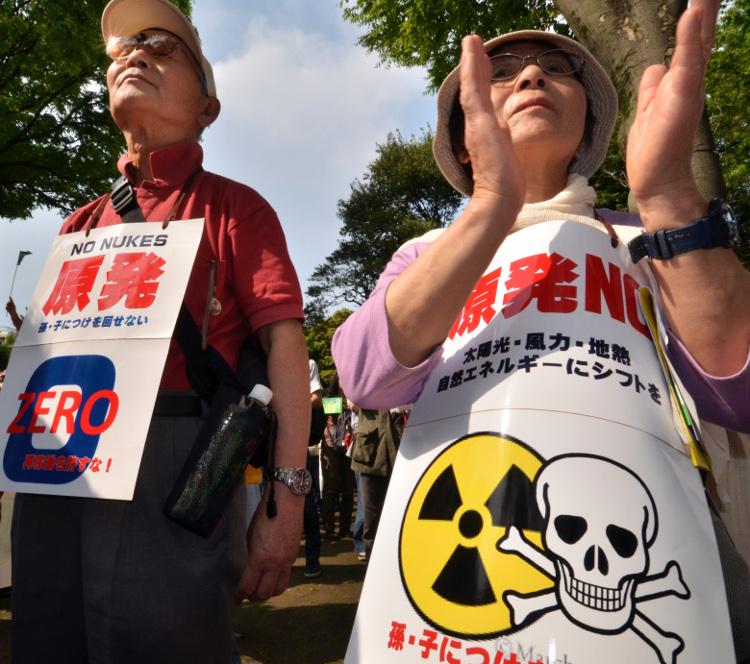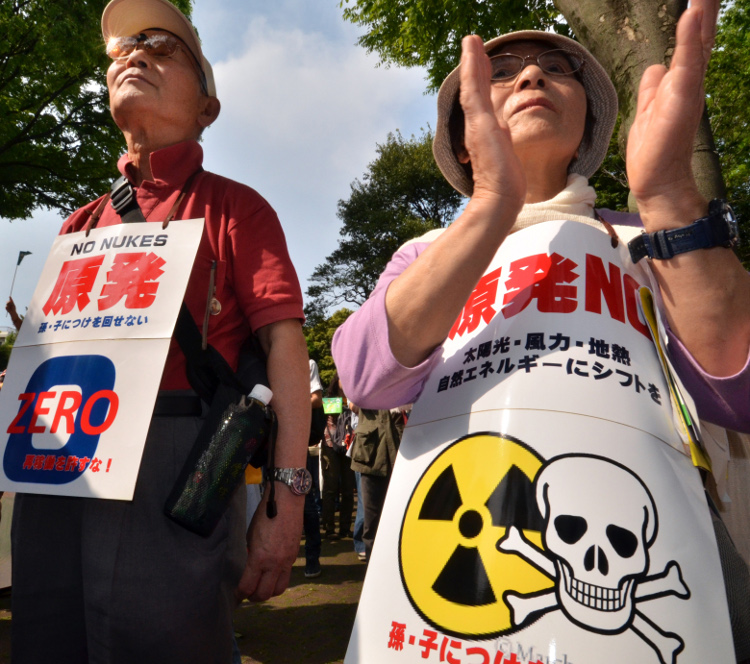Japan turned off its final nuclear reactor for routine maintenance on Saturday, the first time the country has gone without the power source since 1970.
Most of Japan’s nuclear power plants were shut off after the devastating March 11, 2011, earthquake that crippled the Fukushima Daiichi reactor in the world’s worst-ever nuclear disaster since Chernobyl. All of the country’s reactors must undergo special stress tests mandated after the disaster.
The tests are in two stages: the first to assess if safety systems could be disabled by natural disasters beyond what was foreseen in the plant’s design; then to assess the impact of simultaneous natural disasters.
On Saturday, the Hokkaido Electric Power Company took reactor No. 3 of the Tomari nuclear plant offline; the country’s last operating reactor. None of the country’s 50 plants taken offline for maintenance has been restarted.
As summer approaches, Japan faces another season of severe power shortages after last year’s disaster. The country depended on nuclear power for around 30 percent of its energy needs before the March earthquake; that percentage had been expected to increase to 40 percent by 2017, hoping to displace the amount of oil imported particularly from the Middle East.
Japan currently depends on imports to meet about 84 percent of its primary energy needs. So while much of public opinion is strongly against nuclear power, there are also unanswered concerns about how to live without it.
Industry Minister Yukio Edano, whose agency manages the country’s nuclear power plants, has said there will possibly be rolling blackouts throughout Japan during the summer months if nuclear energy is not available, Kyodo reported.
Prime Minister Yoshihiko Noda’s government is considering restarting two reactors at Kansai Electric Power Co.’s Oi nuclear plant in Fukui Prefecture to deal with energy shortages.
The decision that will likely meet with public opposition.
Regarding the shutdown of the last reactor on Saturday, anti-nuclear activists reminded politicians that public opinion is still against restarting nuclear plants.
“It is the (Fukushima) accident not public opinion that shut down the nuclear reactors,” Yui Kimura, a member of the Nuclear Phase-Out TEPCO Shareholder’s Movement, told the Asahi Shimbun newspaper. “I cannot be unreservedly happy about this.”
Kimura added that more people need to join to make their views known. “People have yet to recognize that nothing will change unless they take an action. If things go on like this, nuclear reactors will be back online soon.”
The country’s business sector however is calling for restarting at least some of the power plants.
Hiromasa Yonekura, head of the Japan Business Federation, told Kyodo that Japan’s economy would suffer without nuclear energy, saying that utility companies have boosted their capacity but “that can little help stabilize power supply.”
Makoto Yagi, who heads the Federation of Electric Power Companies of Japan, stated the organization “will try to regain trust from society especially from the areas hosting nuclear plants and continue making utmost efforts so that we can restart nuclear plants as soon as possible,” the news agency reported.
The Epoch Times publishes in 35 countries and in 19 languages. Subscribe to our e-newsletter.






